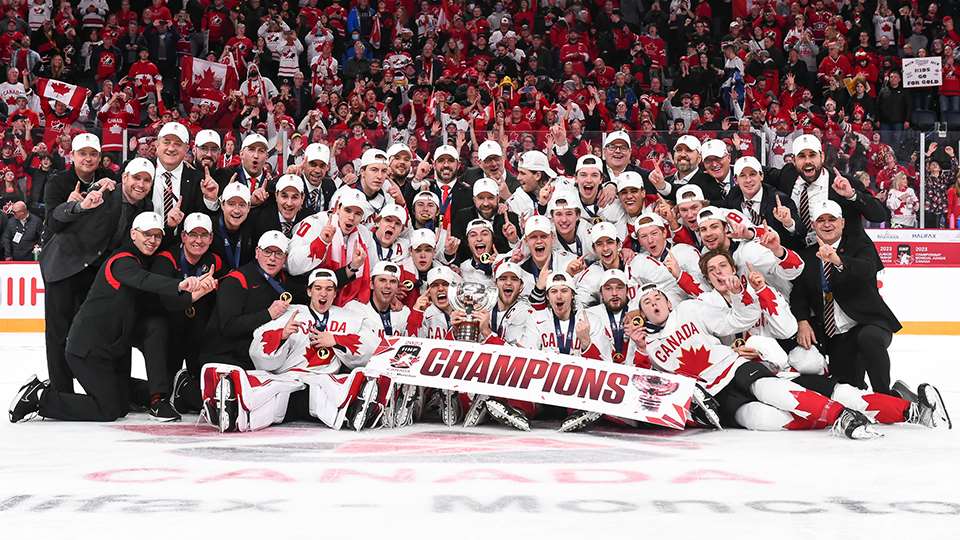
When I heard the words, they immediately grabbed my attention. It wasn’t so much the words themselves, but the context of when they were spoken that was impressive. Team Canada had just won the World Junior Hockey Championship for the second year in a row. Connor Bedard was the tournament MVP. He was the talk of the tournament and of the nation and this was his first post-game interview after the gold medal victory in sudden death overtime.
The reporter began the interview with a typical question about Bedard’s remarkable play over the course of the tournament but the seventeen-year-old immediately jumped in, almost interrupting the reporter, to say:
“I don’t want to talk about myself right now. We’re not talking about me…”
While it’s not particularly unusual for athletes to give credit to their teammates, it is unusual to refuse to talk about themselves first, especially in the heat of the moment, just minutes after winning the biggest game of their careers. This wasn’t a pre-planned response; it was spontaneous and genuine. It showed everyone watching that Bedard is a leader with humility.
Humility is an essential character trait of all great leaders. It helps us to remain open-minded; allows us to recognize our own limitations and strengths; and ensures that we recognize the importance of teamwork and collaboration. You aren’t good at everything, and neither is anyone else. When we recognize that, we can better work together so that one person’s strengths compensate for another’s weaknesses and vice versa.
I think it’s important here to clarify what humility is and what it is not. Often people think being humble means thinking poorly of yourself or pretending you aren’t good at something when you are. Maybe you’ve been told that it’s not polite to brag and you think that acknowledging our strengths is boastful. Great leaders, however, understand that they need to acknowledge their strengths and use them to make a positive impact.
In our social-media-obsessed world, it’s so easy to get caught up in a mindset of comparison. We may feel like we need to prove ourselves or show off our accomplishments to gain recognition and respect from others. Or conversely, we may feel like we’re never good enough because we don’t measure up to those we admire. Humility allows us to both admit that we aren’t perfect, while also acknowledging that we all have gifts to share. It provides a quiet confidence that doesn’t need external validation and doesn’t have to prove anything to anyone else in order to feel okay. Sure, we all like to receive praise and compliments, but hopefully, we don’t need them to feel good about ourselves.
That is what I saw in Connor Bedard in that interview. He wasn’t denying how well he played, he knew his strengths. He was confident enough not to need the praise and validation of that reporter and so he was able to instead shine the light on his teammates. As C.S Lewis, the author of Alice in Wonderful (among many other words) once said, “Humility isn’t thinking less of yourself, but rather thinking of yourself less.”
